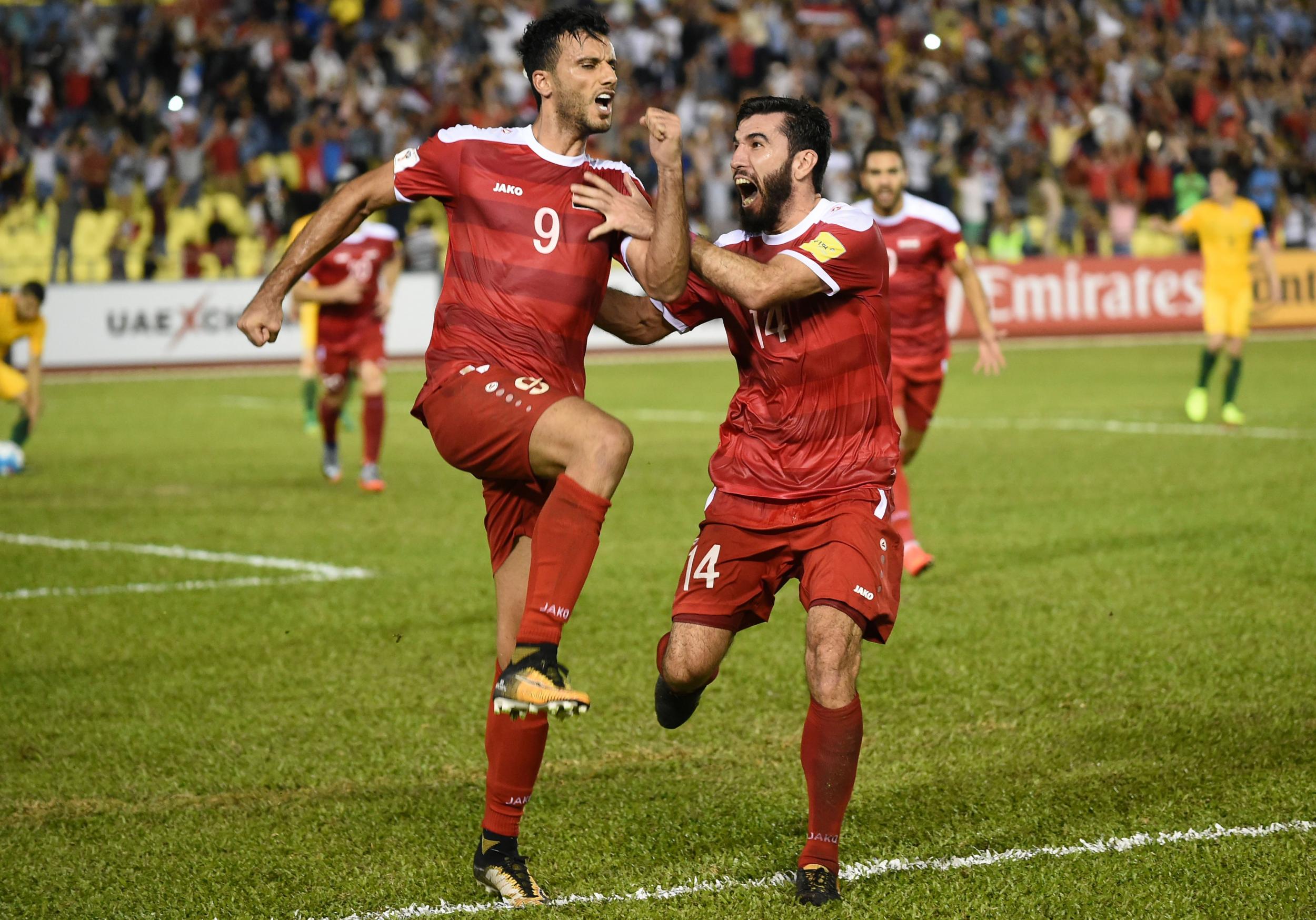Why the Syrian World Cup miracle isn't the heartwarming story it's presented as
Astonishing 1-1 draw with Australia keeps dream of Russia 2018 alive – but Syrian team’s success exposes deep divisions and the horrific fate of many professional athletes who opposed Bashar al-Assad’s government

Your support helps us to tell the story
From reproductive rights to climate change to Big Tech, The Independent is on the ground when the story is developing. Whether it's investigating the financials of Elon Musk's pro-Trump PAC or producing our latest documentary, 'The A Word', which shines a light on the American women fighting for reproductive rights, we know how important it is to parse out the facts from the messaging.
At such a critical moment in US history, we need reporters on the ground. Your donation allows us to keep sending journalists to speak to both sides of the story.
The Independent is trusted by Americans across the entire political spectrum. And unlike many other quality news outlets, we choose not to lock Americans out of our reporting and analysis with paywalls. We believe quality journalism should be available to everyone, paid for by those who can afford it.
Your support makes all the difference.Syrian striker Omar Al Somah stunned his teammates and supporters in scoring an equalising goal in Thursday’s World Cup qualifier against Australia, keeping his country’s hopes of its first ever finals appearance alive.
His late penalty means the two teams will contest next week’s second leg with the tie perfectly poised at 1-1.
Somah’s achievement came after a similarly astonishing equaliser in the 93rd minute of Syria’s previous game, against regional football heavyweight Iran, which meant the game ended in a 2-2 draw.
In regime and rebel-held parts of the country alike, the underdog display against clear favourites Australia was met with frantic celebration – as well as in refugee camps around the region and by the Syrian diaspora further afield.
For many, however, the euphoria is dampened by how Syria’s civil war, now in its seventh year, has ripped apart the country’s social fabric.
Syria’s athletes have been drawn or forced into taking sides since Arab Spring protests began in 2011.
More than 100 professional footballers have been “disappeared” by regime forces over the last six years, subject to torture and other brutal treatment in some of the most notorious of President Bashar al-Assad’s prisons.
At least three have been confirmed dead, their mutilated and starved bodies identified in the famous 2014 images leaked from Sadnaya prison outside Damascus and other military facilities, including the former captain of the national team, Jihad Qassab.
Zakaria Youssef, who played for Al-Ittihad FC, was killed in government shelling in a neighbourhood of Aleppo in 2012.
Some have fled as refugees and now live in UN tents in sprawling camps. Others have been luckier: exiled from their home, they have found new careers playing for clubs abroad.
Two have wrestled with their conscience to come back and play for the team, but it has come at a high personal price.
Firas al-Khatib, now Syria’s captain after five years playing in Kuwait, has lost friends after his perceived betrayal of the revolution and endorsement of a government that starved and bombed his home town.
“Now, in Syria, [there are] many killers, not just one or two,” he told ESPN in English, shortly before deciding to return, speaking of his fears the Syrian opposition has splintered into al-Qaeda-linked extremist factions.
“Whatever happen, 12 million Syrians will love me. Other 12 million will want to kill me.”
Sport can be an opportunity to forget war and politics. Football is “a dream that brings people together. It gives people a smile and helps them forget the smell of destruction and death,” Bashar Mohammad, the Syrian national team’s spokesperson, said recently.
Critics say those who play for Assad’s Syria – or even watch a game – are tacit supporters of a whitewashing campaign designed to hide the regime’s crimes against civilians in a war which has killed almost half a million people.
“The road to Sydney has been paved with too much blood to ignore,” journalist Oz Katerji wrote on Twitter.
“An equaliser against Australia is noteworthy, but it will never erase the cold-blooded extermination of professional athletes in Syria.”
Join our commenting forum
Join thought-provoking conversations, follow other Independent readers and see their replies
Comments